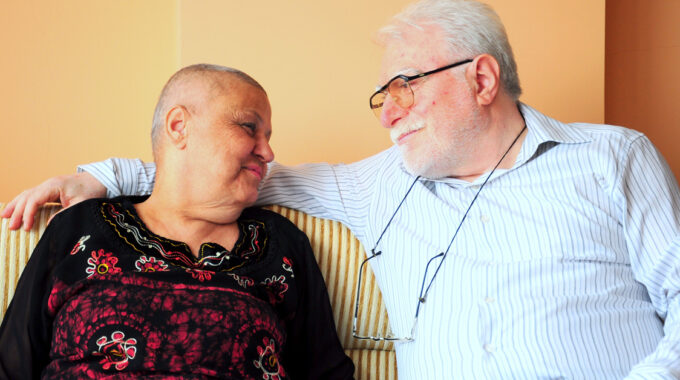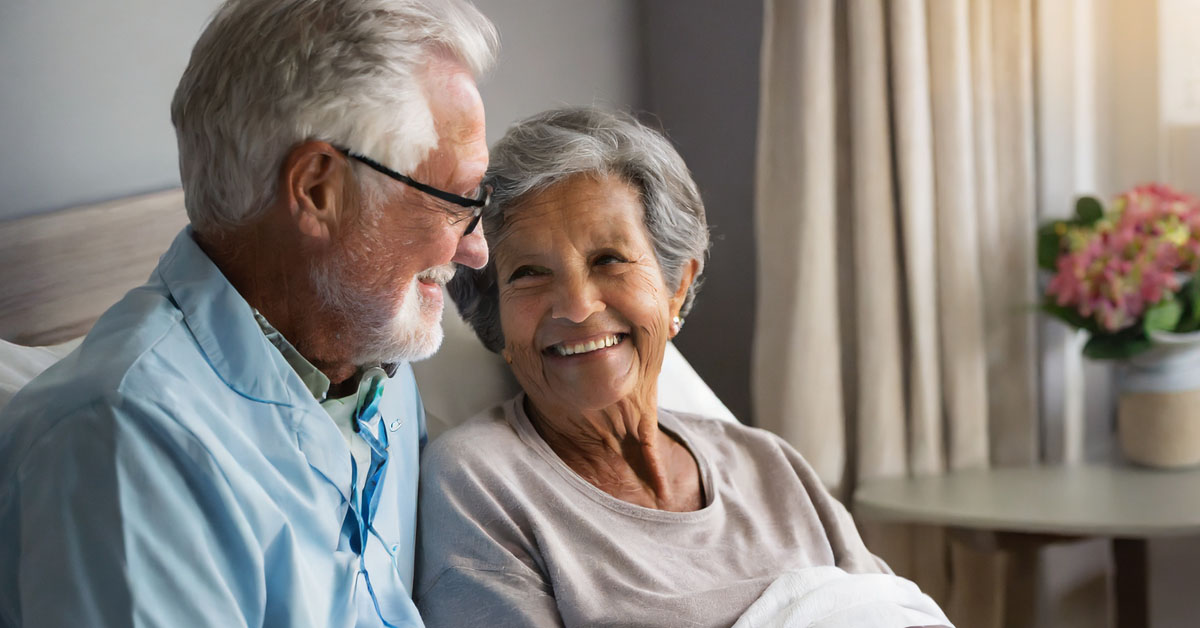
More Support Means Less Caregiver Depression
Most husbands and wives prefer to be directly involved in the care of terminally ill spouses.1 Those who have never been in this position might think taking care of a dying spouse would be distressing. The picture is more complicated than that. Spousal caregivers describe the experience as rewarding.2 On the other hand, families easily underestimate the emotional and physical toll of the caregiving role.
Spousal Caregivers Experience High Risk of Long-Term Depression
In the general population, seven percent of people experience major depressive disorder at some point in their lives. For spousal caregivers, it’s much higher. When a husband or wife has an advanced disease such as terminal cancer, a quarter to a third of spouses providing personal care suffer clinical depression.3 What’s more, that depression often lasts for years after the spouse passes away.2
When husbands and wives care for disabled spouses 24 hours per day, they lose normal opportunities for self-care. They have interrupted sleep patterns. They don’t take time off when they are ill. They skip doctor’s appointments and have lower-self reported health care behaviors.4 Elderly people are particularly vulnerable to these problems.
Supporting Family Caregivers Reduces Depression
Interestingly, Patricia Thielemann, PhD, RN, CHPN and her research colleagues found that there is a straightforward way to reduce depression in these circumstances: give the spousal caregivers some help.5 To be more specific, researchers found that the caregiver’s perception of social support correlates with the risk of depression. Social support includes both assistance with chores and having people available as confidants. Moreover, their research shows that decreasing the demands on caregivers through help with daily chores, help with preparing and administering medications, nutritional care, etc. lowers the risk of depression.
Hospice Supports Family Caregivers and Reduces Depression
One easy way to help family caregivers is to sign up for hospice. The sooner a patient does this, the better. In a different study published in the American Journal of Psychiatry, Dr. Elizabeth Bradley and her research team found that spouses had a lower likelihood of depression when patients received more hospice.3
Time in Hospice / Risk of Clinical Depression
- 1 to 3 days in hospice = 24.1%
- 4 to 7 days in hospice = 10%
- 8 to 14 days in hospice = 3%
How Hospice Supports Family Caregivers
Hospice reduces the strain on family caregivers in multiple ways. Hospice volunteers help with daily chores. Hospice aides can assist with personal care tasks such as bathing, grooming, dressing, and changing bed linens while a person is still in the bed. Nurses provide caregiver education so spouses feel better prepared to care for loved ones. Nurses prepare medications, administer medications, assess patient status, and report important changes to the physician. Even the office staff at hospice agencies make the family’s life easier by coordinating all the services such as pharmacy pickups, home infusion, medical equipment, inpatient respite stays, etc. In addition, all the staff mentioned above plus social workers and hospice chaplains are trained and available to listen to caregivers and attend to the personal and emotional aspect of caring for the caregivers. The hospice program even reduces financial worries. Medicare pays 100% of allowable costs for hospice, and hospice pays for services, equipment, supplies, and medications related to the hospice diagnosis.
References
- Prokos A, Keene J. The long-term effects of spousal care giving on survivors’ well-being in widowhood. Soc Sci Q. 2005;86(3):664-682.
- Aneshensel C, Botticello A, Yamamoto-Matani N. When caregiving ends: the course of depressive symptoms after bereavement. J Health Soc Behav. 2004; 45: 422-440.
- Bradley EH, Prigerson H, Carlson MD, Cherlin E, Johnson-Hurzeler R, Kasl SV. Depression among surviving caregivers: does length of hospice enrollment matter?. American Journal of Psychiatry. 2004 Dec 1;161(12):2257-62.
- Glajchen M. Physical well-being of oncology caregivers: an important quality-of-life domain. In Seminars in Oncology Nursing 2012 Nov 1 (Vol. 28, No. 4, pp. 226-235). WB Saunders.
- Thielemann P, Conner N. Social support as a mediator of depression in caregivers of patients with end-stage disease. Journal of Hospice and Palliative Nursing. 2009;11(2):82-90.





